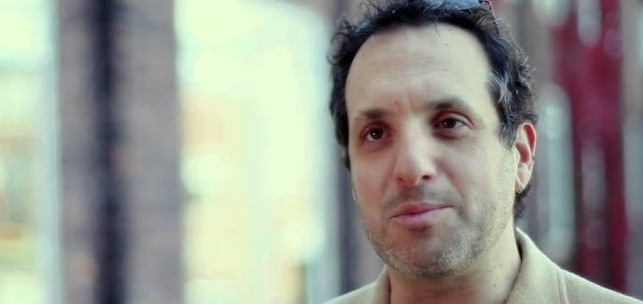Get schooled in SpongeLab Interactive’s gamified approach to teaching science
by Christine Wong — Feb 7 '14
by Christine Wong — Feb 7 '14

The Person: Dr. Jeremy Friedberg, partner and co-founder at Spongelab Interactive. Friedberg always struggled as a student. But he not only beat the odds, he crushed them by getting a doctorate in molecular genetics and biotechnology. The boy who never did well in school is now helping to revolutionize how kids learn and teachers teach. Friedberg is a researcher, public speaker, coffee fanatic, father of young children and winner of awards from the United Nations, the National Science Foundation and the Journal of Science. With a plate that full, it’s a good thing that (according to his website) he “enjoys not sleeping.”
The Project: Spongelab Interactive provides game-based learning tools and consulting – both open-source and commercial – for public and private sector clients. Since 2007 it’s delivered over two million pieces of educational content to users in over 160 countries. In Spongelab’s Transcription Hero game, you get to rock out while racing to transcribe DNA sequences on a Guitar Hero console. “Games are engaging and exciting. From our side, games are the most sophisticated learning tools we’ve ever advanced to,” says Friedberg.
Behind all the fun and games is some serious scientific research, he adds: “All the design of it has been research driven. Research is in everything we do and approach.” Friedberg is particularly interested in researching how games can be used to tailor learning experiences for each unique person. “It’s to understand how you, as an individual, learn. It’s stripping off content and process and looking at who you are as a user and thinking of you as a person. You’re an intelligent, emotional person driven by all sorts of things. Those other one-size-fits-all approaches usually fail completely – not just in education but in all areas.”
The Progress: “We have lots of (research) projects on the go,” says Friedberg. “We have a game-based learning project in collaboration with Centennial College funded partially through NSERC (National Science and Engineering Research Council). That project’s geared to the general public, to make tangible, personal connections to your learning.”
Friedberg has also submitted new research proposals to York University and the University of Ontario Institute of Technology (UOIT). It’s an ongoing process of uncovering how game-based technology helps us learn, he says. “We have research applications in process. We publish (findings) but the research never ends.”
The Prospects: Friedberg’s own personal website states that he currently has two patents pending but provides no other details. Though we poked around for ways his research might take a specific commercial spin somewhere down the road, he’s staying mum for now. “Any sort of commercialized venture you’re in, you can’t talk about publicly until it’s released,” he says.
The Passion: “I’ve always liked research as a whole,” says Friedberg. “It’s being able to discover some very complex things that are very tangible to people around you and very personal to yourself.”
For Friedberg, part of that personal discovery process was deeply painful. He floundered throughout school until finally discovering in third-year university that he learns best through visual and spatial means, not printed words.
“I grew up and struggled with that,” he says. “If my work can help other kids not feel like they’re dumb simply because they’re not getting an ‘A’ on a multiple choice test, that’s worth it.”
Christine Wong is a journalist based in Toronto who has covered a wide range of startups and technology issues. A former staff writer with ITBusiness.ca, she has also worked as a reporter for the Canadian Economic Press and in broadcast roles at SliceTV and the CBC.
Twitter LinkedIn Google+
Apr 17 '14

Apr 16 '14

Apr 15 '14

Apr 11 '14
Copyright © 2016 CommerceLab


